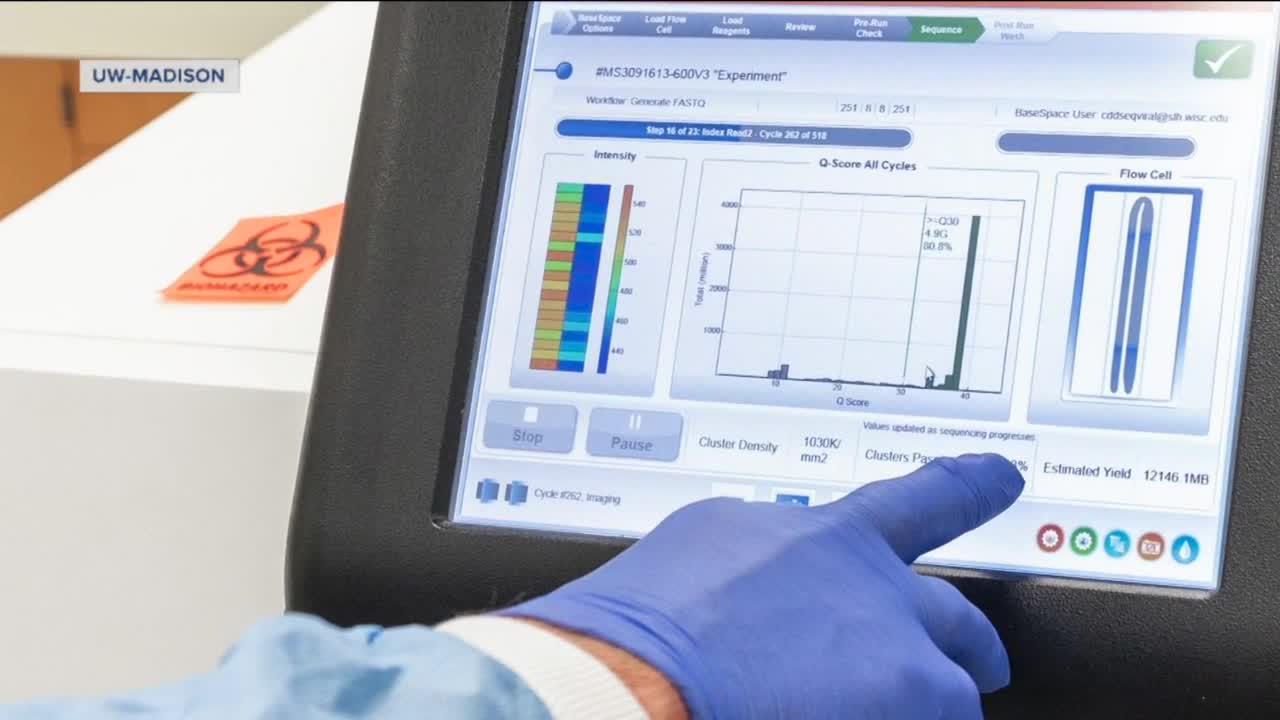Health leaders believe more than half of the new coronavirus cases in Wisconsin contain variant strains, but people who have COVID-19 will never find out if they have a variant.
Maggie Smith said she’s been dealing with typical cold symptoms, so she recently got a coronavirus test at Milwaukee’s Southside Health Center. It isn’t just COVID-19 that Smith is worried about as variants are now believed to be more dominant in Wisconsin than the virus’ original strain.
“I feel like I haven’t heard necessarily of anyone getting the variants, but I know they’re out there,” Smith said.
Since variants are considered to be more contagious and can cause more severe symptoms, Smith’s mother Jenny Benjamin thinks everyone who tests positive for the virus should be about to find out if they also have a variant.
“The question has come to my mind is OK, then do people actually know they have that? Because that’s kind of a big deal,” Benjamin said.
Dr. Alana Sterkel oversees the Communicable Disease Division at the Wisconsin State Laboratory of Hygiene. It’s the largest of four labs in Wisconsin that have the training and equipment to test for virus mutations. Dr. Sterkel said labs are not allowed to inform the patient or their healthcare provider if they have a coronavirus variant.
“Unfortunately, we have some really strict limitations, federal regulations really mandate what kind of results can be reported back to patients from what kinds of tests,” Dr. Sterkel said.
Dr. Sterkel said labs conduct what’s called "whole genome sequencing" on samples of positive COVID-19 tests for surveillance purposes. That way they can provide state and local public health officials with a big picture analysis of how many variants are spreading in Wisconsin and where.
“That’s where you’re trying to identify which letters. It’s like reading a book of finding ATC's and G’s to find out what that code is,” she said.
Given the state’s limited variant testing abilities, Dr. Sterkel said they’re taking a couple of different approaches to get the full scope of the spread in Wisconsin. About 10 percent of the samples sent to labs are coming from all over the state to provide a geographical representation. The rest come from positive cases with unique circumstances.
“People who have traveled to areas these are present, vaccine failure infections, breakthrough infections, reinfections, things that might indicate there’s a new mutant that we need to discover,” she said.
Dr. Sterkel said each sample that’s sent to her lab takes two to four weeks to process from start to finish due to the highly complex process. The State Laboratory of Hygiene currently has the capacity to provide results for about 400 variant tests a week.
“We’re just crossing that 50 percent threshold for variants of concern compared to other strains,” she said.
State health department data shows all four of the main variants of concern are in Wisconsin and they make up more than a third of all samples tested from the southeastern portion of the state.
Dr. Sterkel said the latest set of statewide variant data shows the B-117 variant that originated in the United Kingdom was found in 35 percent of the samples they tested. This graphic shows that the percentage has steadily increased over the past several weeks.

The data also shows two strains that were first found in California called B-427 and 429 are becoming more prevalent in Wisconsin. They have been found in more than 10 percent of samples sent to variant testing labs in the past month.
“It’s not really something that an individual person needs to worry about,” said Dr. Tito Izard, the president and CEO of Milwaukee Health Services Inc.
Dr. Izard said no matter if people with coronavirus have a variant case or not, it doesn’t have an impact on the guidance they’ll receive from their doctor or health department. That includes the required time in quarantine.
“It won’t change their prevention strategy or their treatment strategy,” Dr. Izard said.
The state of Wisconsin currently has 584 confirmed variant cases, but health leaders say that is merely a fraction of how many there truly are. Just a few months ago, labs were testing about 1 percent of positive coronavirus samples for variants. That’s up to about 6 percent now.




